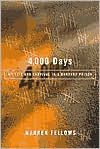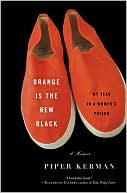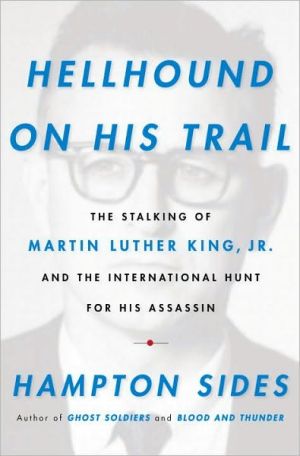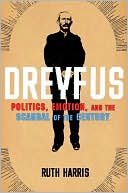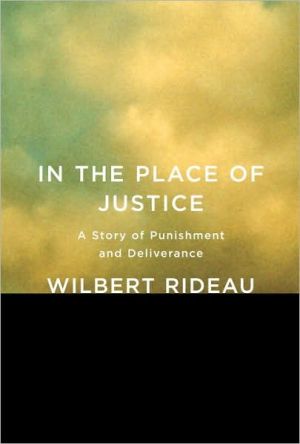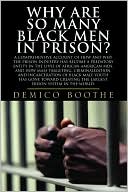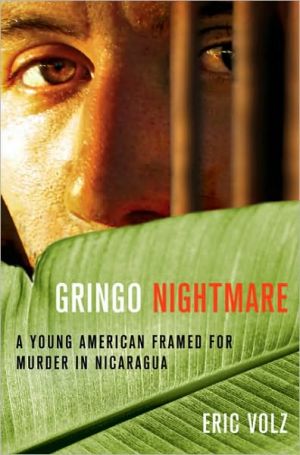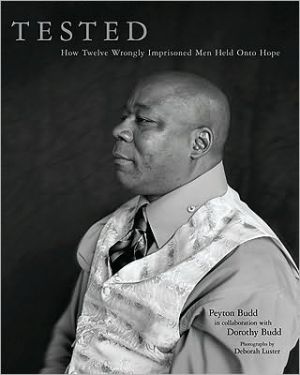4,000 Days: My Life and Survival in a Bangkok Prison
In the late 1970s, author Warren Fellows and two of his friends had the perfect scheme: they would traffic heroin between Australia and Thailand, concealing it flawlessly in high-tech, invisible compartments in suitcases. The money was there, and the process seemed foolproof—especially because they hadn't gotten caught in all their prior attempts at smuggling. But in 1978, all that would change, and Fellows would spend the next twelve years of his life enduring violations of his human rights...
Search in google:
In the late 1970s, author Warren Fellows and two of his friends had the perfect scheme: they would traffic heroin between Australia and Thailand, concealing it flawlessly in high-tech, invisible compartments in suitcases. The money was there, and the process seemed foolproof—especially because they hadn't gotten caught in all their prior attempts at smuggling. But in 1978, all that would change, and Fellows would spend the next twelve years of his life enduring violations of his human rights of unimaginable hideousness. Fellows, convicted in Thailand, spent these twelve years in Bangkok's infamous Bang Kwang prison, witnessing atrocities committed by both prison officials and his fellow inmates. He survived countless torturous beatings, was forced to eat rats, and endured solitary confinement under terrifyingly inhumane conditions. On a daily basis, Fellows also witnessed the torture and execution of those around him, their screams as common as the insects and vermin in his cell. Many of the prisoners in Bang Kwang turned to heroin—the vice that landed Fellows there in the first place—to escape their daily nightmares, and the prison guards often helped feed this deadly addiction. Fellows, now a free man, has lived to write about these twelve ghastly years. He has captured the filth, pain, anger, hopelessness, and torture of life in a Thai prison with vivid, engrossing detail and brutal honesty.
Chapter One \ CHANCE\ \ \ My father rode the winner of the Melbourne Cup in 1949. Bill Fellows and Foxzami strode home easily, a few lengths ahead of the field. Things looked good for the family, which at that point consisted of my father, my mother, four-year-old Gary and two-year-old Gail. I was to follow in 1953. But the future of the Fellows family began to collapse before I had even entered it. Six months after my father's victory, Gail died of a bowel complication. My father never really recovered. He lost interest in competing and, by all accounts, seemed to surrender his spirit. I remember him as a fairly happy person, but I was always aware of a certain sorrowfulness underneath, a discomfort from which he didn't seem to want to escape.\ Nevertheless, he continued working with racehorses and became a very sought-after trainer. Naturally, I spent a lot of my youth around him, at the training sessions and the racetrack. I used to love going to the track with my father. I knew he was an important figure and I enjoyed being a part of the action.\ It was at the track where I developed my interest in punting. Like every punter, I loved winning, but I also loved the thrill that came from knowing that I was always close to a catastrophic loss.\ This compulsion continued until, thirty years after my father, my picture appeared in the papers, too. But I'm not raising a trophy or being congratulated by anyone--I am cowering behind my own hand as 8.5 kilograms of heroin are displayed on a table in front of me.\ The story of how I came to be in this picture is a labyrinth of chance meetings and bad decisions. As I have told you, I have always been drawn to a game where a degree of chance is involved. But I believe my turning point, the crossroads where I veered towards my fate, came to me while I was working in a bar in Wynyard, deep in Sydney's central business district. It was here that I met Richard, a guy who drank in the bar who also seemed to be doing a good deal of SP bookmaking work.\ One night, he called me over and asked me a favor--he said he was holding a bit too much money for comfort, and asked if I would please slip around to the TAB to place $500 for him. I was not alarmed at this--through my experience at racetracks, bookmakers were a shady breed who rarely did harm to anyone except themselves, or those who owed them money. I began to run these errands for him regularly. My employer didn't seem to mind. He'd seen his share of murky behavior and accepted it as life in public bars.\ After a while, Richard and I became good friends. We drank together after hours and got on well. We also shared the same birthdate: September 13.\ One night at the bar, Richard asked me if I was interested in a bit of adventure. He said he had a sensational contact who could get us some hashish very cheaply. All we had to do, he said, was travel to India and return to sell the hashish for a sizeable profit.\ Until this point, at the age of twenty-one, drugs had played no part in my life. I honestly had no idea what most drugs looked like--they were indulged in by people far from my world and I just wasn't interested. I had heard a few stories during my time as an apprentice hairdresser, working in the toffee Sydney suburb of Double Bay. Just your usual high-flying tales of indulgence. The question of where these drugs came from had never occurred to me, and the idea that I was close to the traffic, or capable of entering it, or that drugs would change the shape of my life forever, was just unthinkable.\ Four years prior to this night, at the age of eighteen, I had attempted to smoke a cigarette. The room began to spin as if it were mounted on some big wheel, and I was sick before the fag had burned down. This, as unbelievable as it may sound, had been my only experience with drugs before Richard's India proposal.\ Nevertheless, I listened as Richard explained to me that he could get hash for $50 a pound. This meant very little to me as I had no idea of the street value of hashish, but I told him I'd think about it and get back to him soon.\ Later that week, I was at a nightclub in the city and ran into a few friends I had known at De La Salle College in Ashfield, where I went to school. We talked for a while, particularly about how I had been nearly expelled for running a betting scam from class. I'd draw up a form guide in my desk, collect bets from interested classmates and run to the TAB at lunchtime. It worked very well for a while--even some of the teachers were having the odd bet--but it was eventually exposed. One day at assembly, in front of every boy in the school, the headmaster declared that a betting scam had been brought to his attention and the boy responsible should step forward. He said that he knew who the boy was and was giving him one last chance to salvage some dignity and own up. Prior to the assembly, I had been tipped off by various students who believed I had been named to the school staff as the ringleader. Nevertheless, I gambled that he was bluffing and silently stood my ground. After a few moments, the headmaster announced: "All right, then ... Warren Fellows, come forward immediately."\ This would not be the last time in my life that I ignored warning signs and walked into an ambush. No doubt, my old school friends assumed that I had continued along such an outlaw path and, coincidentally enough, asked if I was interested in buying some hash. I told them no, but asked, just out of curiosity, how much a pound of hash would fetch on the market. They suggested $1800 would be about right.\ I was dazzled. The money seemed so good that I can honestly say the consequences didn't occur to me at all. The chances of being caught were outweighed by the potential for profit. I made up my mind on the spot.\ A few days later I saw Richard and told him I was interested. He explained to me that before we did anything we would have to come up with money for our airfares and accommodation, as well as the deal itself. I told him I'd approach another bookmaker I knew who might stretch me a loan. When I asked the bookmaker for the money, I decided to be straight with him and tell him exactly what it was for. To my astonishment, he agreed right away to the loan, adding: "I trust you, Warren."\ \ \ I can still feel India. Maybe no one forgets their first trip overseas, and their first impressions of a new land. If I close my eyes, I can smell that hot stench of poverty. I can hear it: the beggars, the filthy, broken people darting about, whole families living and growing in the streets, people so deformed they looked like their bodies had been melted. I remember seeing one woman who was missing most of the features on her face, with festering craters where the features had been, as if they'd fallen off only a few minutes before. And I can vividly recall my most frequent thought during that first day in Madras: "Why am I here, making this trip? Why do I need the money? I'm not doing so badly."\ We soon met Richard's contact, a man called Rashik, who invited us to stay in his house with his wife and family. He was very accommodating, but, as a drug contact, Rashik proved to be less than sensational after all. When Richard finally mentioned the purpose of our visit, Rashik was horrified. He flatly refused to have anything to do with hashish at this time. Gandhi had declared a national emergency--not an unusual occurrence in India--and the slightest offense carried an immediate two-year jail term. Rashik, a well-connected local, was nervous.\ For the next few days there was little else for Richard and me to do but move about, pretend to be tourists and keep our ears open. We soon found ourselves drifting south to Bangalore, the nearest city with a racetrack. Here, we met Ronny Monroe, a Corsican hustler in his mid-forties. For reasons I was never to ascertain, he was banned from entering just about every country in the civilized world, and so had made India his home. While not forthcoming with any advice regarding where to obtain hashish, Ronny seemed the sort of person who might put Richard and me in contact with the right people. He invited us to dinner that night, at the Hotel Bangalore International.\ Immediately upon leaving the racetrack, Richard and I were stopped by three policemen. They wanted us to tell them our names and the hotel at which we were staying. Foolishly, Richard told them everything.\ That night, at around 6PM, there was a knock at the door. I opened it to find the same three policemen who, strangely, walked straight past me and demanded identification from Richard. They then proceeded to search through every piece of luggage Richard owned, while never touching a single thing of mine. As they left, one of them--a captain, I think--smiled at me and said, "Goodnight." I distinctly remember a peculiar feeling I had at that moment--a feeling that I was in the middle of something I didn't fully understand, and therefore could not be harmed by it. My innocence, I thought, would keep me safe, even when I was guilty.\ At dinner that night, Ronny introduced us to many local people. He seemed very well connected.\ Midway through the evening, I noticed an Indian man, possibly in his late thirties, slumped on a table in the distance, his head down and his arms outstretched, as if saying a hopeless prayer. Ronny told me his name was Ahma, the owner of the hotel, and soon called him over to our party. Ahma did his best to join our conversation, but seemed very distracted.\ All of a sudden, and apparently out of nowhere, the man began to sob. Ronny explained to me that Ahma was heartbroken over a girl who had recently left him. I approached Ahma and tried to offer him the usual sympathy, but he seemed inconsolable. Eventually, I asked him if there was anything I could do to help. He stopped crying, lifted his head and asked me to follow him to the office, where he produced a photo of the girl. Instantly, I understood why Ahma was so devastated.\ Her name was Avril. She was astonishingly beautiful, a young French/Indian girl with long black hair and striking blue eyes.\ Ahma begged me to go to Avril's home in nearby Cochin and bring her back to him. He said he would pay both myself and Richard $1000 each, as well as taking care of our airline tickets and accommodation. We would be correcting a terrible wrong, he said, and he would be eternally grateful. The only condition was that at no time was Ahma's name to be mentioned. If we were to drop any names at all, we could only mention Arthur, a jockey in Bangalore with whom Avril was acquainted. Ahma's involvement was to be kept secret from Avril, and we were not to reveal this discussion to anyone else.\ I conferred with Richard and we both agreed that it sounded like an interesting diversion. When we accepted Ahma's offer, he again began to sob, only harder than before.\ \ \ Three days later, Richard and I arrived in Cochin, and spent the morning lazing about in the lush hotel grounds while trying to form some sort of plan. By mid-afternoon we still hadn't dreamed up anything spectacular, so we decided to go to the address we had been given and just see what unfolded.\ Avril's home was surrounded by a high fence, as if containing something that was not to be seen by ordinary people. I noticed that curiosity had grabbed the better of somebody, for a neat spy-hole had been carved into the woodwork. I peered inside, and gazed upon the reason for both the fence and the spy-hole.\ Avril was sitting on the back steps, wearing nothing but a pair of white shorts. She was gently combing her hair, which cascaded like a deep, black waterfall down the entire length of her back. Never before or since have I seen anything so gorgeously exotic. Ahma's grief was making even more sense to me now, for I was beginning to feel heartbroken myself.\ We returned to the front of the house and knocked on the door. Avril's mother answered, and we explained that we were friends of Arthur's, who had told us to come and visit Avril while we were holidaying in Cochin. She smiled and invited us in for tea and biscuits.\ Avril seemed cautious at first, but, as we spoke, I could see both her and her mother relaxing in our company. I couldn't take my eyes off Avril, and was working to the point of exhaustion to disguise my every intention. After a time, I nervously asked whether they would both like to accompany Richard and I to dinner that evening. To my surprise, they accepted the offer immediately.\ We took them to the finest restaurant we could find and ordered several bottles of champagne. Over the course of the evening, I would sometimes catch Avril's eye and my heart would thump. I knew then that I was falling for her completely. I was too hypnotized by my own feelings to dare remember that we were drinking Ahma's champagne.\ Later in the night, Avril asked me if I would like to join her for a walk in the gardens. I was so overwhelmed I could scarcely rise from the table. As we walked through the grounds, Avril talked of her dreams of finding a better place for herself and her mother, her desire to escape, her gnawing feelings of confinement. She asked me plenty about myself and what I was doing in Cochin, and I very nearly crumbled under the weight of my own lies. She stopped by a flowerbed, picked one with large white petals, turned and handed it to me. Then we kissed. I was utterly lost to this girl.\ Later, back at our hotel, I talked with Richard about what had occurred. He suggested that if anything romantic happened between Avril and me it could be disastrous for both of us--as emotionally broken as he was, Ahma did not seem an unpowerful man. We decided that the safest thing we could do was to return to Bangalore and claim that Avril had refused to come with us.\ \ \ A few moments after entering the foyer of the Hotel Bangalore International, we saw Ahma dashing towards us, a look of desperation in his eyes. Had we succeeded? Where was Avril? As we explained that she had not wanted to return with us, his face sagged with disappointment. He continued to probe for answers, as if not accepting our explanations. Eventually, he requested that I see him alone in his office. Once there, Ahma turned, looked me directly in the eye and declared: "I know that you can bring her back. I know that if anyone can bring her back to me, it is you. I need you to return to Cochin."\ There was something new in Ahma's voice now. He was no longer weakened and insipid, but forceful and determined. I knew there was no way he could have known about what had happened between Avril and me, but something told me he did. What's more, it seemed that he didn't care--so long as it brought Avril home to him.\ I don't know if I relented because I felt for him or because of my own feelings for Avril. To this day I don't know.\ Whatever the case, I returned to Cochin two days later. When I arrived at Avril's house, she ran to the front gate to meet me. She was overjoyed that I had returned and smothered me in affection. For the next few days we were never out of each other's sight. It was bliss.\ One evening, Avril took me out on a motorbike to an old village. It was as if we had been transported back to some primitive age: mud huts for houses, no vehicles or machinery whatsoever, women sitting in their huts grinding grain for bread. In the centre of the village, some bizarre ritual was taking place. I could see a woman writhing in the dirt, throwing up what looked like parts of her internal organs. There was a man dressed in white and draped in many beads, standing over her and chanting things I could not understand. Avril explained to me that voodoo was still practiced in Cochin, that this woman was possessed and was about to undergo an exorcism performed by a white witch. At that moment, a woman appeared carrying a live chicken. The man in white chanted some more, then the woman cut off the chicken's head, causing the headless body to dash crazily about. When it finally came to rest in the dirt, the woman on the ground seemed to relax, as if what had possessed her now possessed the dying body of the chicken.\ As I had never seen anything like this before, it naturally disturbed me. Avril, on the other hand, seemed perfectly at ease with it all, as if she was in touch with some otherworldliness that I couldn't possibly fathom.\ \ \ One night, Avril and I were in my hotel room when the phone rang. It was Ahma. My heart pounded so hard I was sure he could hear it in Bangalore. I had to be shrewd, convincing Ahma I was alone while, at the same time, disguising the caller's identity from Avril.\ "Have you seen her?"\ "Yes."\ "Is she returning with you?"\ "I don't know yet."\ Avril began to look curious and a little concerned. I smiled at her as I said to Ahma: "I'll call you back when I know."\ As soon as the call was concluded, Avril asked who the caller had been. I told her it was Richard, inquiring as to when I would be returning to Bangalore.\ Hearing Ahma's voice had suddenly reminded me of my real purpose for being in Cochin. In that moment, I might have broken down and told Avril everything, but a strange sense of duty forced me to continue with my deception instead.\ I asked Avril if she would consider coming to Bangalore with me, as I could not bear to leave her behind. At first, she said no--she didn't like Bangalore and, as much as she wanted to be with me, she had no desire to return to that place. I pressed her for an explanation but she simply shook her head. I pleaded with her, promising that I would not leave her side and would return her to Cochin at any time she wished. Finally, she agreed to come with me, but on the condition that we travelled by car. She did not wish to be seen at the airport. This aroused my curiosity, but I decided not to press her further for fear that she may change her mind.\ I called Ahma and explained the situation to him. Not surprisingly, he was thrilled. He told me to hire a taxi for the trip--he would pay the driver when we arrived in Bangalore.\ The mixed feelings that swam in my head during that journey almost defy description. I was overcome by love for Avril, but driven by a sense of obligation to Ahma. In succeeding for him, I was betraying her. I had no idea what would happen when we arrived, but Avril's apprehension was beginning to unsettle me. I was caught in the middle of a situation which had no comfortable resolution that I could imagine. By the time we reached the outskirts of Bangalore, I was convinced I had made a dreadful mistake.\ As our taxi pulled to a halt outside the Hotel Bangalore International, Avril stiffened and paled with fear. When I asked her what was wrong, she simply shook her head and refused to get out of the vehicle. But it was too late, for Ahma had seen the taxi and was already racing towards us. He was obviously delighted to see Avril. The look on her face, however, was a fusion of terror and defeat. She turned to me as if begging an explanation for why I had betrayed her. I felt sick.\ Ahma whisked Avril out of the cab and into the hotel before I could so much as take a breath. I went to my room to think about what had happened and what I was going to do now.\ \ \ The following evening, I went to the bar and inquired after Avril. Nobody seemed to know of her whereabouts, and there was something conspiratorial about the way they all denied knowledge of her existence. Eventually, I spotted Ronny Monroe and told him what had happened. He glared at me with genuine astonishment as I revealed everything--our mission at Ahma's request, the journey to Cochin, me and Avril. To my horror, Ronny explained how Avril was virtually a prisoner here, that Ahma even had an apartment specially built for her where she remained under armed guard. Each evening, Ahma would escort Avril to the hotel restaurant, where she would play guitar to entertain the guests, then return her to her room at the evening's end. She had escaped once before and, now that I had brought her back, it was doubtful that Ahma would let her out of his sight again.\ I asked Ronny to tell me where the apartment was. He knew instantly what I was thinking and told me I was a fool, that Ahma was not a man to mess with, but I insisted. Quite apart from my feelings for Avril, I knew I would never live with myself if I left without trying to reverse the predicament I had helped engineer for this person. Eventually, Ronny told me that the apartment was on the third floor of the hotel, with two sentries armed with .303 rifles guarding the entrance to the stairway on the ground floor.\ Before nightfall, I conducted a basic reconnaissance of the building and found what looked to be a way to the balcony adjoining Avril's apartment. It was a bit of a heroic long shot but I was determined to give it a try.\ The following day, when I heard that Ahma was absent from the hotel, I climbed out of a window on the fourth floor, crept down the sloping roof and swung onto the landing below. I waited outside Avril's door for a few moments and, when I was sure there was nobody else in the apartment with her, I knocked. Avril answered, pulled me inside and quickly closed the door. Though pleased to see me, she was terrified. She said that if Ahma discovered us together we would both be doomed. As briefly as I could, I explained to her why things had worked out the way they did, how I had betrayed her unwittingly and would do everything I could to help her escape. It was an anxious few minutes. It was also one of the most loving moments of my life. By the time I left Avril's little prison, we had agreed to be married.\ Over the next few days, I desperately tried to find a priest who would marry us so that I could bring Avril back to Australia. But everywhere I went, I was told that I had to wait three months before we could go through the correct legal process in court.\ Time was running out for me and Avril. While I'd been concerning myself with her, Ronny had uncovered a contact through whom he could obtain some excellent quality Kashmiri hashish, and Richard had organized somebody who could construct suitcases with false interiors. We would be leaving India in a few days.\ Two nights before we left, I returned to see Avril one more time. I explained to her the problem with getting married and told her that, although I had to go, I would come back for her soon. It was an emotional and passionate farewell. Avril asked that I leave her something of mine, something for her to remember me by until I returned. I gave her the only item I had in my pockets--a comb. I told her it was an appropriate gift, as the first time I had seen her she had been combing her hair. We cried together as we embraced, promising each other we'd wait.\ --------\ \ \ During the following day, before leaving India, I was strolling down the street when I came across the dwelling of a fortuneteller. I stepped inside and was greeted by a woman so old and frail it seemed she would have enough trouble seeing the present, let alone the future. Nevertheless, I sat opposite her in the darkness, and her opening utterances filled me with a mixture of fascination and dread.\ She told me exactly when I was born, to the very time of day, and I had told her nothing. She then went on to tell me that when I turned twenty-five years old I would enter into ten years of very bad luck, whereupon I would suffer untold loss. In this time, I would be afflicted with a terrible sickness, but it would not kill me. She then revealed that there was a woman in my life of whom I should beware. This woman, she said, was evil, and I was not to let her get any article of my clothing or a single strand of my hair. As I rose to leave, she told me I would never again return to India, and warned that I should be careful at airports.\ \ \ Returning from that first trip to India was almost a catastrophe.\ We caught a domestic flight to Madras where we would connect with our flight home to Australia. As we approached the customs bay, with our bags prepacked with hashish, we noticed something that shook us to the core: customs officials were checking every single suitcase or bag that went through the luggage area. They were being very thorough, with every item being ruthlessly scrutinized then marked with a chalk `X' when it had passed inspection. The hash in our suitcases was sufficiently concealed to pass a routine inspection, but there was no way its discovery would go unnoticed here. Richard and I had to think fast. We agreed to pretend that we had lost the keys to the suitcases and engage in a wild argument which, hopefully, would create some kind of diversion.\ When the official asked me to open the bags, I turned to Richard and asked for the keys. He replied that he didn't have them, that I had never given the keys to him at all. So began the mock brawl that culminated in me throwing a phony tantrum and kicking the hell out of the suitcases, as if I wanted to break them open. The officials must have assumed that anyone who would want to break open their suitcases must not be concealing anything illegal inside. He tried to calm me down, told me my anger was unnecessary, marked the bags with an `X' and hurriedly ushered us through.\ But we were not out of the soup yet. We had a stopover in Singapore, where we were to change planes and show our inoculation cards and passports. As we reached the authorities, Richard discovered that he had packed his inoculation documents in one of the suitcases. I thought the authorities might let it drift, but they stood firm, saying one of us would have to be escorted down to the luggage area and retrieve the documents from our baggage. Believing myself a better actor than Richard, I volunteered to go. Playing the role of the innocent, jovial angel was an excruciating task as I searched through the suitcases with an armed guard looking over my shoulder. Eventually, I found the relevant papers and we got through Singapore.\ While standing at the terminal in Sydney, waiting for our bags to appear on the revolving carousel, it became apparent that I had dealt the suitcases a more brutal thrashing in Madras than they could handle. One of them had split at the seams, and it looked as though the slightest touch would cause it to come completely apart, spilling bags of hashish onto the concourse. For a moment I considered cutting our losses and leaving them on the carousel, but I then realized the authorities would have no difficulty tracing them to Richard and myself. I quickly snatched the bags from the conveyor belt, threw them onto a trolley and made my way through the gates, boldly announcing I had nothing to declare. I was through.\ Once again, good fortune seemed to have shielded me from every potentially disastrous onslaught.\ \ \ I was to see Avril once more. Several months later, I was in India on another job. Passing by the Hotel Bangalore International, I caught a glimpse of her, quite a distance away, sitting in the front gardens, her head bowed toward the ground. I was compelled to stop and stare at her for a moment. As if sensing I was there, Avril slowly raised her head and met my gaze. She was still as enchanting as ever, but there was an expression on her face which I had never seen before. It was nothing--no surprise, no love, no hostility, nothing--as if she were staring into total darkness.\ Then she simply bowed her head toward the ground and continued combing her hair, which cascaded like a deep, black waterfall down the entire length of her back.\ I tell this story to show just how reckless I was at this time in my life. The fact is, by the time I returned to India I had found another. She was with me on this occasion when I saw Avril. I was so shortsighted, so easily impressed and distracted that I couldn't even maintain my own feelings, no matter how deep or intense, for any decent stretch of time.\ I was the perfect person to become a drug courier.\ \ \ What followed this tour of India is basically a story of greed. Mine.\ But, wherever there is room for greed, there will always be a cast of thousands: people who are crooked. Some have since grown up to become decent members of society, while others, like myself, simply had the crookedness bludgeoned out of us. I don't wish to expose such people unnecessarily--there can be no future in that for anybody. This is the major reason why many names in this story are changed or deleted entirely.\ There are, of course, some people in this story who, to this day, are still crooked. I hear tales of them from time to time, like rumored sightings of Elvis. For me to name such people outright would be to ensure that I was murdered before you opened your next Christmas present. I won't be doing it.\ In any case, this is the story of what I did, and what became of me because of it. It is not my business to prosecute anyone else, and it's not my wish to do so, either. They can do that themselves. Or leave it to God, or the laws of nature, or mathematics--it doesn't matter. There are a few notable exceptions, but I'll tell you about them later.\ One of the changes that occurred when I returned to Sydney was that I got married and fathered a child. And that is as much as I wish to say about my wife and son. They have little bearing on this story and I'd much rather leave them be. Today, they have rebuilt their lives and I have no desire to revive the agony they suffered, for the sake of a few colorful mentions in a book. It breaks my heart to think of them. When you incarcerate someone, guilty or not, you incarcerate the innocents who love them, and there are always such people. The most vile murderer of all time had a mother.\ For entirely different reasons, there is another person I would like to leave out of this story. I'd like to forget he ever existed. But I cannot forget and cannot leave him out--he is a pivotal player in my life and one of the reasons why I am who I am today, and not who I once was.\ His name is William Sinclair. To even mention those two words makes me uneasy, as if the mere utterance will somehow come to life in some ghostly form of the human being. I wish I could tell you why I feel this way about him, but I dare not. I don't want to utter his name again in this story. I will refer to him from now on as "The Old Man."\ I became aware of The Old Man in the bar in Wynyard, where this whole affair began. He used to do a fair amount of punting there, particularly with a guy known as "The Bookmaker." The Old Man called himself a businessman, but never really elaborated on what, exactly, his business was. Sometimes, it was "travel consultant," other times it was "finance broker." It appeared that he was very wealthy. He would wander about introducing himself with this slinky facade of nobility, complete with a phony regal accent. The truth is that he was, in fact, innocent of the particular crime for which he was later incarcerated, but he was certainly no babe in the woods. He was cunning and ruthless and cared about nobody but himself. There was no way I could have known this at first, but I was to learn.\ The Old Man had heard of my courier exploits--probably from Richard, with whom I had fallen out over a totally unrelated matter--and began sniffing around. It became obvious to me that he wanted to be part of the action. In order to do so, however, he would have to get rid of The Bookmaker, and he was soon to get his chance.\ Over the next few months I began to travel extensively on The Bookmaker's ticket. I made trips to Hawaii, Los Angeles, and various regions in South America to obtain cocaine. During one of these journeys, a contact fled with some of The Bookmaker's money and never returned with the goods. Everybody knows this is a common occurrence in the drug world, so it was with a fair amount of embarrassment and concern that I phoned The Bookmaker to let him know. To my relief, he accepted my story and told me we'd sort it out when I returned.\ In my absence, however, The Old Man had heard of my trouble and seized the opportunity to sully my relationship with The Bookmaker, telling him that I had pocketed the money myself and could not be trusted. The ploy was successful enough, for after my return The Bookmaker began harassing me for the money he now claimed I owed him.\ One night at the Wynyard bar, two men who I had never seen before approached me and began to slap me around. They said that I owed somebody money and should pay it or there would be serious trouble. The blows became more and more ferocious until I assured them I'd solve the problem before the end of the week. The following day I approached The Bookmaker who, I immediately assumed, was feigning shock and confusion at my battered appearance. I told him I intended to pay him the money he wanted, but simply did not have such an amount at that time. He was silent for a moment, then dropped the apparent facade, saying he was sorry this had happened to me but, yes, I did owe him money and he would appreciate its return. I do, however, recall that The Bookmaker did seem genuinely sorry and still bewildered by the whole thing.\ Later, as I was racking my brain for ways to raise the money, The Old Man appeared and, like some sort of walking coincidence, announced that he could help.
Prologue1. Chance2. Thailand3. Signs4. Hell5. Monkey House6. The Fun Factory7. Drugs8. Trial9. Big Tiger10. Death11. Lard Yao12. Mutiny13. Life14. The Last Day15. HomeEpilogueAppendix: Standard Minimum Rules for Treatment of Prisoners
